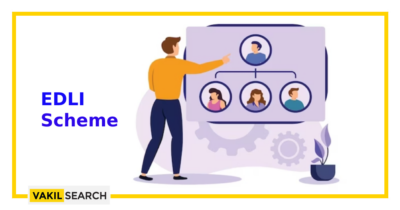Explore the fundamental elements necessary for a valid offer in contracts, outlining key aspects ensuring legal enforceability
An offer is a conditional proposal made by a buyer or seller to buy or sell an asset, which becomes legally binding if accepted. An offer is also defined as the act of offering something for sale, or the submission of a bid to buy something. “In the intricate landscape of contract law, understanding the essentials of a valid offer is paramount. Explore this insightful blog to unravel the key components that transform a mere expression of willingness into a legally binding commitment, shaping the foundation of robust and enforceable agreements.
Essentials of a Valid Offer
-
Clear Intent
A valid offer must demonstrate a clear intention by the offeror to enter into a contract. It should contain explicit terms indicating an intention to be legally bound upon acceptance.
-
Expression of Willingness
An offer needs to convey the offeror’s willingness to create a legal relationship with specific terms. It should not be vague or ambiguous, but rather precise and definite.
-
Objective Test of Essentials of a Valid Offer
The objective test refers to whether a reasonable person, observing the offeror’s words and actions, would believe that the offeror intended to make a genuine offer. This test evaluates the outward manifestations of the offeror’s intent.
Communication of the Essentials of a Valid Offer
Direct Communication of Essentials of a Valid Offer
Direct communication involves the offeror directly conveying the offer to the offeree, ensuring that the terms and conditions are clearly communicated without intermediaries.
-
Verbal Offers
Verbal offers are made through spoken words and are legally binding if they meet the necessary criteria of a valid offer, including clear intent, definite terms, and an expression of willingness.
-
Written Offers
Written offers are communicated through documentation, such as letters, emails, or contracts, providing a tangible record of the offer’s terms and conditions. This written form helps in clarity and evidence of the offer made.
Indirect Communication of Essentials of a Valid Offer
-
Advertisements
Advertisements can serve as a form of indirect communication of an offer. However, for an advertisement to become a valid offer, it typically requires specific language indicating an intention to be bound by the terms stated in the ad.
-
Display of Goods
The display of goods in a store or a shop window is generally considered an invitation to treat rather than a direct offer. Customers making an offer by expressing an intention to buy are then inviting the seller to accept or reject that offer.
Revocation of Essentials of a Valid Offer
-
Time Limits
An offer may specify a deadline for acceptance. Revocation occurs automatically if the offeree fails to accept within the stipulated time frame, rendering the offer invalid after the expiration of the stated period.
-
Lapse of Time
In the absence of a specified time frame, offers can lapse after a reasonable period. What constitutes a reasonable period depends on the nature of the offer, custom, and circumstances, after which the offer becomes invalid.
-
Reasonable Period
Revocation of an offer can occur if the offeree does not respond within a reasonable period, which varies based on the nature of the offer and the context. After this period, the offeror can assume the offer is no longer open for acceptance.
Legal Capacity of the Offeror
-
Competence and Legality
The offeror must have the legal competence to enter into a contract. This entails being of sound mind and not under any legal incapacitation, ensuring the ability to comprehend the terms and implications of the offer.
-
Age and Mental Capacity
Offerors must possess the required mental capacity to understand the nature and consequences of their offer. Minors and individuals lacking mental capacity might not have the legal capacity to make binding offers.
-
Legal Purpose
The offeror must present an offer with a lawful purpose. Offers aimed at illegal activities or against public policy are considered invalid due to the lack of legal capacity to engage in such agreements.
Non-Offer Situations
-
Invitations to Treat
Invitations to treat are not offers but rather invitations for others to make an offer. They signal a willingness to negotiate or consider offers, such as in the case of inviting bids, auctions, or preliminary discussions.
-
Advertisement as Invitation
Advertisements are generally considered invitations to treat rather than offers. They invite potential customers to make an offer, which the advertiser can accept or reject.
-
Display of Goods as Invitation
The display of goods in a store or shop window is commonly seen as an invitation to customers to make an offer to purchase the displayed items. The seller then has the option to accept or reject the customer’s offer.
Conclusion
Understanding the essentials of a valid offer is fundamental to contract formation and legal agreements. A valid offer forms the cornerstone of contractual relationships, encompassing elements such as clear communication, intention to create legal relations, and definiteness of terms. By adhering to these essential components, parties involved in negotiations can ensure the validity and enforceability of their agreements. Recognising the significance of a well-crafted offer is key to fostering transparent and mutually beneficial transactions. Whether in business or personal dealings, a thorough comprehension of the essentials of a valid offer lays the groundwork for sound contractual practices. For more legal clarity get in touch with our professionals today.










